The Burden of Being American Muslim in an Anti-Muslim Era
by Fatima Ahmed
In November of 2015, a series of coordinated terror attacks took place in Paris which shocked the world. Just last month, a far-right leader tweeted a video of Muslims celebrating on the streets of London, along with the words “Oh look, a crowd of ‘moderate’ Muslims celebrating the Paris Terror attack in London.” That video, however, was soon debunked as it was revealed that it was filmed in 2009 and featured British-Muslims celebrating a cricket match, not an attack.
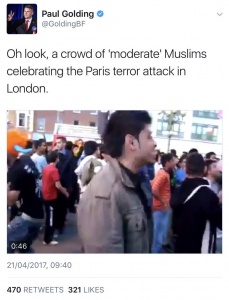
Tweet Deleted: https://pbs.twimg.com/media/C-Gx0PBXUAEZNRN.jpg
So why does this happen? How does a video of Muslims being happy quickly become propaganda against them?
In recent times, we have witnessed an increase in hate crimes toward the Muslim diaspora living in the West. With right-wing, anti-immigrant, and Islamophobic sentiment on the rise, the pressure on Muslim communities has increased. They have come under greater scrutiny, with their lifestyles and worldviews constantly being questioned at every turn. In our current political climate, it is impossible not to conflate Muslims with politics. Muslims do not have the privilege to exist as just human beings, but instead, they are put under a microscope and scrutinized for the smallest things. This has led to a culture where anything said or done by Muslims can immediately be used against them.
So, it is no surprise that we are currently witnessing a significant rise in the number of hate crimes committed against Muslims living in the U.S. Last year, 385 anti-Muslim acts were recorded in the United States. The burden of hostility facing the American-Muslim population is undeniably present. With this much persecution present in their daily lives, it is no surprise that Muslim-Americans are rightly distressed.
Every time an act of domestic terror happens, Muslim-Americans become targets. The media immediately starts speculating on whether the act of terror was committed by a Muslim. For example, after the shooting at a Quebec mosque in January of this year, many media outlets irresponsibly assumed the terrorist to be a Muslim man when, in fact, it was a white nationalist. As soon as it was confirmed that it wasn’t a Muslim, the act of terror was quickly downgraded in magnitude by the media.
Mosque attack suspect formally charged w/ six counts of murder; Second man cleared, identified as a witness https://t.co/oRzxGHEXDm
— Fox News (@FoxNews) January 30, 2017
Furthermore, Muslims are kept under surveillance not just by the government but by average citizens. Symbols of faith like the skull cap, the hijab, brown skin, and beards have become targets for non-Muslims to watch for and attack. There are now reports of Muslim children being bullied at higher rates than their non-Muslim counterparts. ISPU reported that 42% of Muslim children report being bullied for their faith. In this environment, many Muslims feel the need to blend in, choosing to not have any overt symbols of Islam on their person. Moreover, even if you are not Muslim but appear to be one, such as having brown skin or a turban, puts people at risk of being targeted for hate crimes.
However, if an attack is said to have Islamic ties, the entire Muslim community comes under fire. Because of this, when news of an attack starts circulating, Muslims don’t have the luxury of just grieving. They are compelled to also be afraid for their own safety and future while also being mournful for the victims.
Muslims are not only afraid for their personal safety and also forced to be apologetic for crimes they did not commit. In the wake of any terror attack committed by someone claiming to be Muslim, all of the Muslim community is expected to denounce the incident and apologize on behalf of someone they did not know nor endorse. If Muslims don’t offer any apology to non-Muslims on behalf of their religion, then they are assumed to agree with the attack. The entire religion of Islam is repeatedly tried and questioned just because of the terrible actions of a few people.
In March, during the incident on Westminster Bridge, a picture of a hijabi Muslim woman on her phone went viral. She was attacked on social media for walking past paying “no mind to the terror attack.” She later corrected the Islamophobic assumption by explaining that she was contacting her family to let them know she was alright. Yet because she was visibly Muslim, she was quickly condemned. Evidently, Muslims in public are tasked with exhibiting perfect behavior at all times or else risk public slander. Their reactions and emotions get scrutinized in the public eye mercilessly.
Walk on by… pic.twitter.com/8kCHYoNTIh
— Richard Spencer (@RichardBSpencer) March 22, 2017
In this distressful climate, American-Muslims are living in now, everything they do is immediately politicized. Their happiness, anger, joy, or silence cannot exist without the mainstream media projecting their interpretations on it. Being Muslim in the West has become a liability where Muslim populations feel burdened at having to prove themselves constantly. They have to prove that they are non-violent, that they are not barbaric and backward, that they are just like any other person. All this must be done in the face of growing right-wing forces that would rather portray Muslims are the frightening other. No wonder current times are proving to be the most testing for the Muslim community.






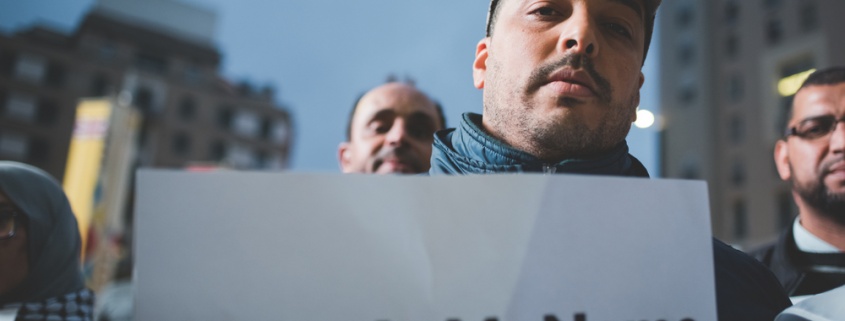
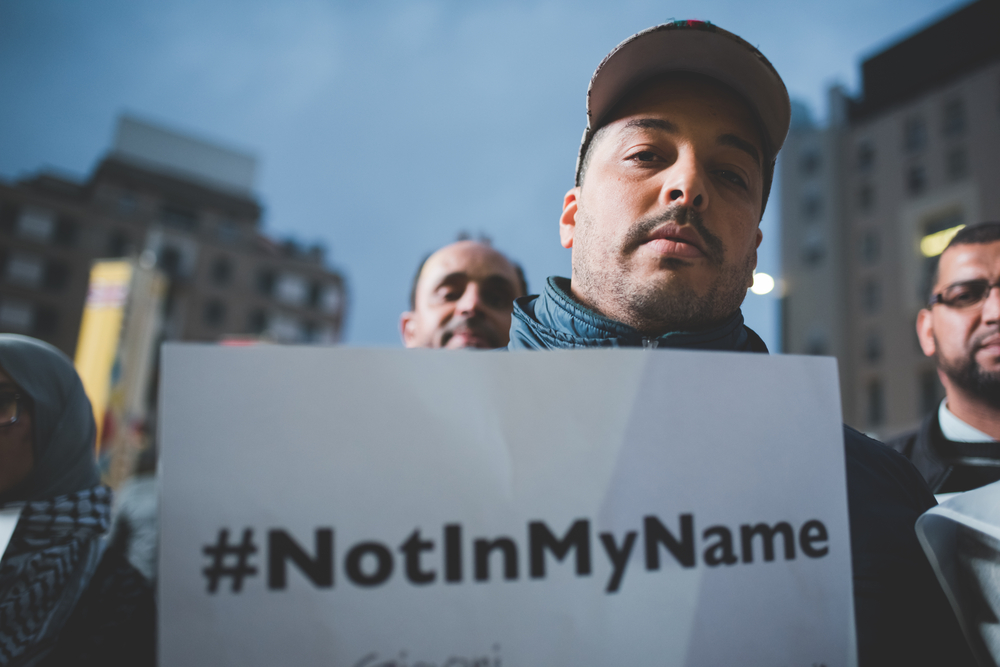

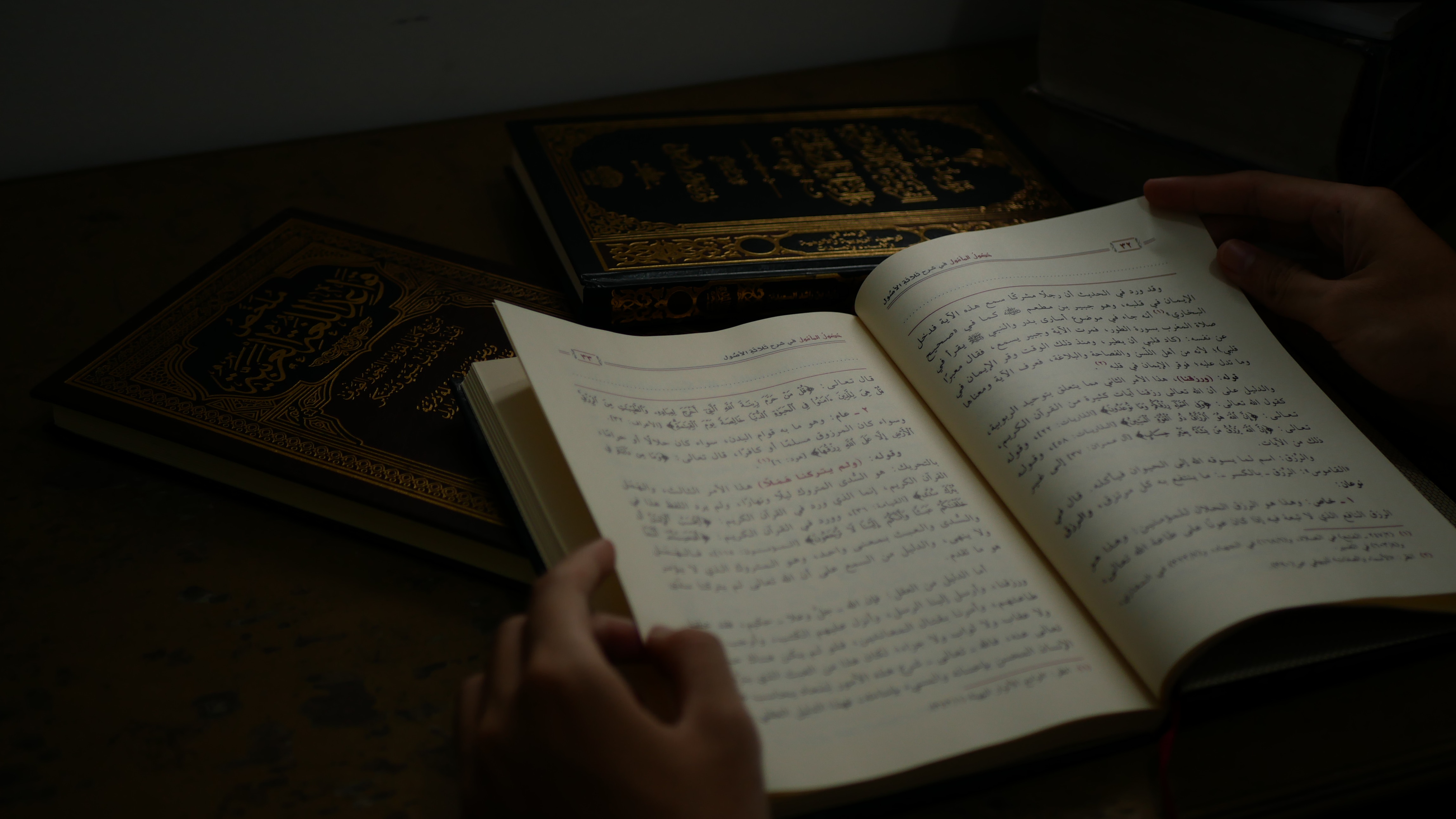

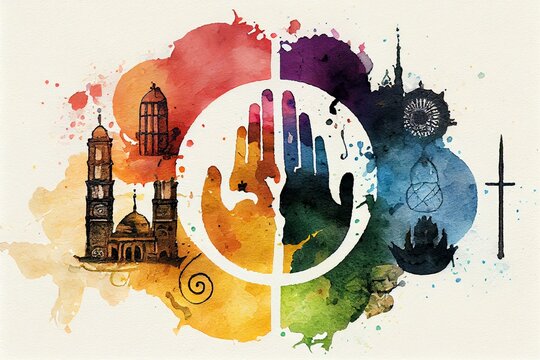





2017
1,776 views
views
0
comments